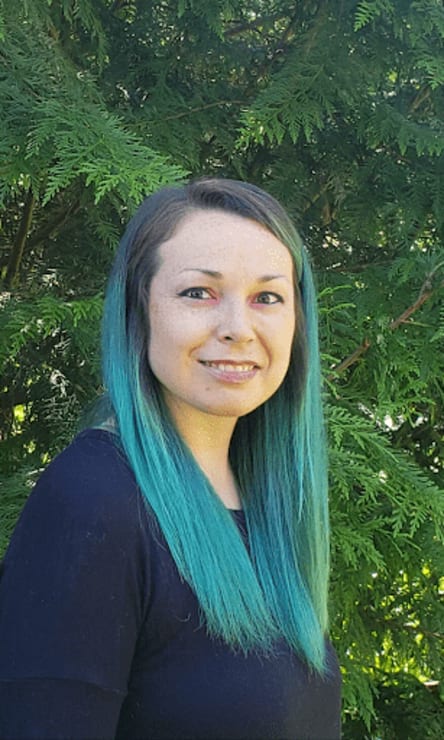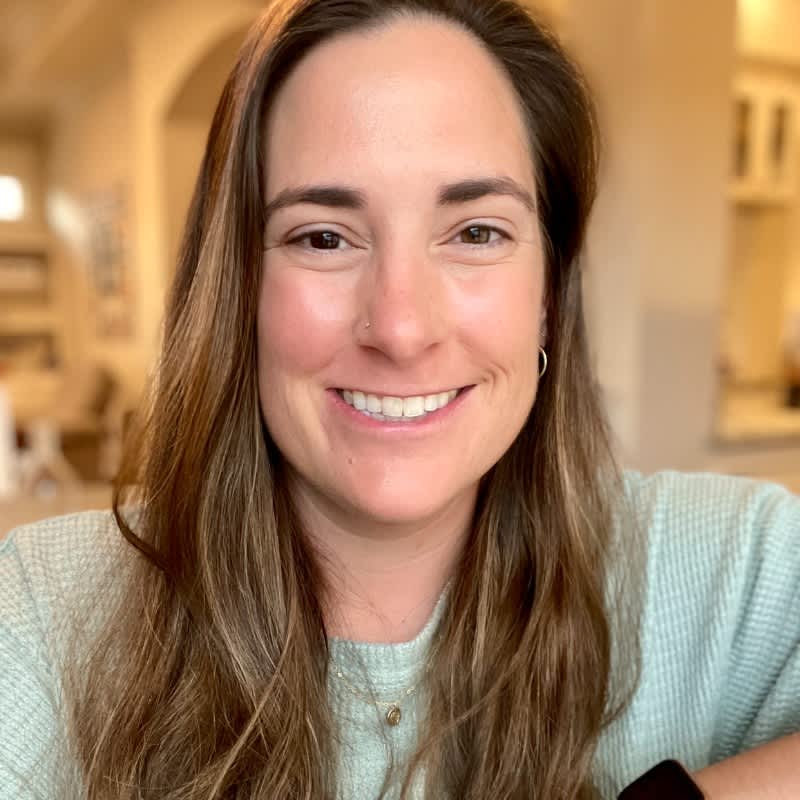This LGBTQ+ Grad Fights the System — and Her Student Loan Debt
At 24, Nicole Brennan can’t afford an apartment because of her student loan debt. Having come from a low-income household, she could not pay any college costs upfront. She graduated with around $170,000 in student debt.
To chip away at her debt, Brennan makes and sells art and promotes her work on TikTok. Her art centers on LGBTQ+ experiences, often featuring commentary on human rights issues. Ironically, the oppressive systems she calls out in her art also prevent her from getting work.
“My queer identity sometimes acts as an obstacle when it comes to sharing my work online and connecting with potential clients/buyers,” she said. “My student loan bill still needs to be paid each month, so by me losing potential work due to my ‘controversial’ identity…I would say my queerness has impacted my ability to pay for school in that aspect.”
LGBTQ+ adults face financial challenges that cisgender heterosexual (cishet) peers don’t. In 2019, the Center for LGBTQ Economic Advancement & Research reported that LGBTQ+ adults had lower, more unpredictable incomes and were more likely to struggle to get by financially.
Read on to learn about the financial challenges Brennan and other LGBTQ+ Americans face after graduation, and how LGBTQ+ grads can build wealth despite the odds.
@nicolebrennan.draws#studentdebt#studentloanpause#artist#genz#lgbt#lesbian♬ pastel skies – Rook1e
The Pandemic’s Economic Crisis Hit LGBTQ+ Grads Harder
Brennan graduated in a pre-vaccine pandemic when unemployment was steep. Her college canceled its networking events. She applied to 20+ jobs without hearing back. None of her classmates seemed to be getting jobs either.
@nicolebrennan.draws#artist#smallbusiness#classof2020#lgbt#queer#lesbian♬ Monkeys Spinning Monkeys – Kevin MacLeod & Kevin The Monkey
The pandemic’s financial hardships were worse for LGBTQ+ adults. The Census Bureau found that they lost employment during the pandemic more often than cishet peers. They were almost twice as likely as cishet adults to report food insecurity.
According to The Williams Institute, even outside of a pandemic, LGBTQ+ adults face extra obstacles, like housing and income disparities. This impacts their ability to afford college or pay student loans.
Daniella Flores, queer financial blogger and founder of I Like to Dabble, said LGBTQ+ folks face financial challenges in every facet of life. Flores side-hustled their way out of $40,000 in debt. Now they coach others and blog about money matters.
Flores said income disparity data just scratches the surface of the money issues LGBTQ+ people face.
“When not only your quality of life is threatened, but also your safety and basic human rights are threatened, you go into survival mode,” Flores said, referencing today’s record amount of anti-LGBTQ+ legislation. “It is difficult to focus on building wealth and visualizing a life where you thrive and are actually free.”
Discrimination Impacts Earning Potential
“Although the majority of my interactions with people online are generally positive and supportive, I do frequently run into those who, for some reason, are determined to see queer people fail,” Brennan said.
Brennan mainly uses social media to connect with potential clients. TikTok, like other social media sites, has work to do to protect LGBTQ+ users.
“My TikTok page… has been reported by homophobic users en masse on multiple occasions…usually disguising the motivation behind their reports under the ‘harassment and bullying’ flag,” Brennan said. “This has only ever happened to the content I’ve posted where I discuss queer issues.”
When TikTok sides with the reporting user, the app temporarily bans Brennan from posting, preventing her from promoting her art. She said the app also places “shadowbans,” where some of her followers’ accounts automatically unfollow her. Those users aren’t alerted that it’s happened or why.
“When these things happen, it becomes a much bigger challenge to market my work and reach new people, sometimes leading to a temporary dip in online shop sales and [a] pause in people requesting illustration commissions,” Brennan said.
Unfortunately, Brennan’s not alone in her experiences. And social media’s not the only culprit.
“Trans folks have the hardest time getting and keeping jobs, even with the newest laws being passed where workplace discrimination against LGBTQ+ folks is now federally illegal,” Flores added. “Money trauma runs deep in the LGBTQ+ community, but it is a complicated trauma when the society you grow up in only seeks to erase you.”
Money Advice for LGBTQ+ College Students
Having run her small business selling art full time for two years, Brennan’s paid off about $50,000 of student loan debt. She admits to having a long way to go and encourages LGBTQ+ students to start building their savings as soon as possible.
Below, Brennan and Flores offered their advice for LGBTQ+ students to build financial security in and after college.
 Save for a Safety Net
Save for a Safety Net
Brennan recommended students start saving as soon as it’s financially possible.
“When you consider the fact that queer people face workplace discrimination and harassment at much higher rates than non-queer people, it is not unusual for a queer person to move jobs at a higher rate than a non-queer person,” Brennan said. “Having a financial safety net in place for potential months of either low or no income…is vital,” said Brennan.
 Invest in Your Future
Invest in Your Future
Once you have an emergency fund, Flores recommended opening a Roth IRA and investing what you can.
“Learning how to [save and invest] consistently will teach you more about how to survive in this capitalist society than anything in school will teach you,” Flores said.
 Take Up Space
Take Up Space
“When you study art, one of the first things you’re told is to ‘make what you know.’ I create art that centers LGBTQ+ experiences…so that those who may not understand what it’s like to live as an LGBTQ+ person may begin to understand, and those who do live as an LGBTQ+ person can feel seen and heard,” Brennan said.
Be like Brennan, and speak truth to the systems that weren’t necessarily built for you. It might just lead to structural change, like fewer barriers to financial security for LGBTQ+ people.
Featuring Advice From:

Nicole is an independent queer illustrator and content creator based in New York City. Having studied cartooning at the School of Visual Arts (BFA 2020), her work is colorful and often humorous, with a heavy focus on LGBTQ+ experiences and issues, as well as human rights. Alongside her queer-centric work, Nicole has an affinity for musicals, and often portrays the performing arts in her visual art. You can see Nicole’s work @nicolebrennan.draws on Instagram and TikTok, as well as purchase her work on her Etsy site.

Daniella is a nonbinary and queer Latine software engineer and sidepreneur. They went from zero to 12 income streams in four years, paid off over $40k of debt in the process, and moved 2,100 miles cross country with their wife Alexandra to live in their dream location. Now, they teach thousands of others how to start and grow their side hustles, work how they want, and get their money right. They’ve been featured on TIME, Investopedia, CNBC, MSN, SLATE, LA Times, and more.
DISCLAIMER: The information provided on this website does not, and is not intended to, constitute professional financial advice; instead, all information, content, and materials available on this site are for general informational purposes only. Readers of this website should contact a professional advisor before making decisions about financial issues.





